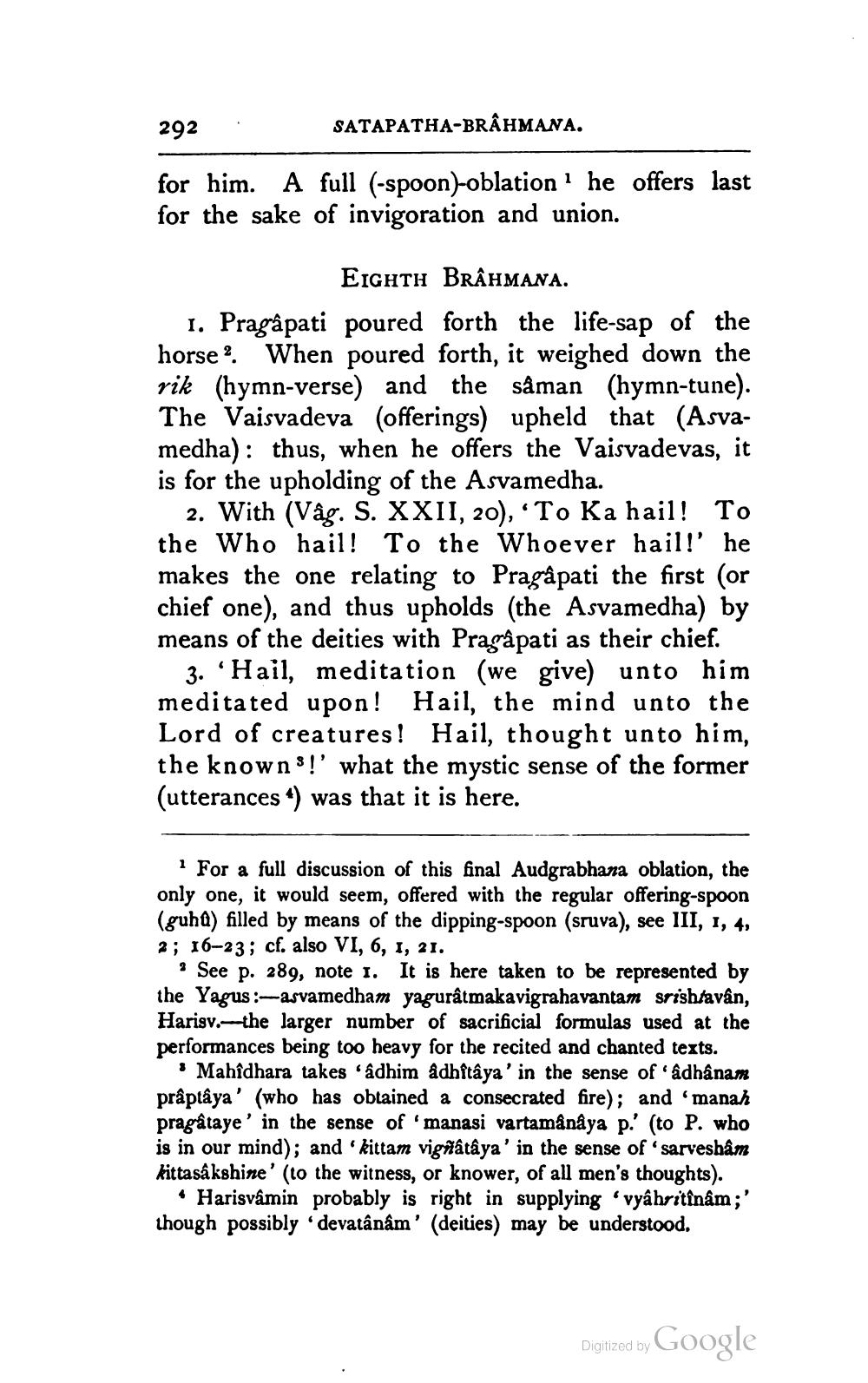________________
292
SATAPATHA-BRAHMANA.
for him. A full (-spoon)-oblation he offers last for the sake of invigoration and union.
EIGHTH BRAHMANA.
1. Pragâpati poured forth the life-sap of the horse. When poured forth, it weighed down the rik (hymn-verse) and the sâman (hymn-tune). The Vaisvadeva (offerings) upheld that (Asvamedha): thus, when he offers the Vaisvadevas, it is for the upholding of the Asvamedha.
2. With (Vâg. S. XXII, 20), 'To Ka hail! To the Who hail! To the Whoever hail!' he makes the one relating to Pragâpati the first (or chief one), and thus upholds (the Asvamedha) by means of the deities with Pragâpati as their chief.
3. 'Hail, meditation (we give) unto him meditated upon! Hail, the mind unto the Lord of creatures! Hail, thought unto him, the known!' what the mystic sense of the former (utterances) was that it is here.
1 For a full discussion of this final Audgrabhana oblation, the only one, it would seem, offered with the regular offering-spoon (guha) filled by means of the dipping-spoon (sruva), see III, 1, 4, 2; 16-23; cf. also VI, 6, 1, 21.
2 See p. 289, note 1. It is here taken to be represented by the Yagus-asvamedham yagurâtmakavigrahavantam srishtavân, Harisv.-the larger number of sacrificial formulas used at the performances being too heavy for the recited and chanted texts.
Mahîdhara takes 'âdhim âdhîtâya' in the sense of 'âdhânam prâptâya' (who has obtained a consecrated fire); and 'manah pragâtaye' in the sense of 'manasi vartamânâya p.' (to P. who is in our mind); and 'kittam vigñâtâya' in the sense of 'sarveshâm kittasâkshine' (to the witness, or knower, of all men's thoughts).
Harisvâmin probably is right in supplying 'vyâhritînâm;' though possibly 'devatânâm' (deities) may be understood.
Digitized by
Google




